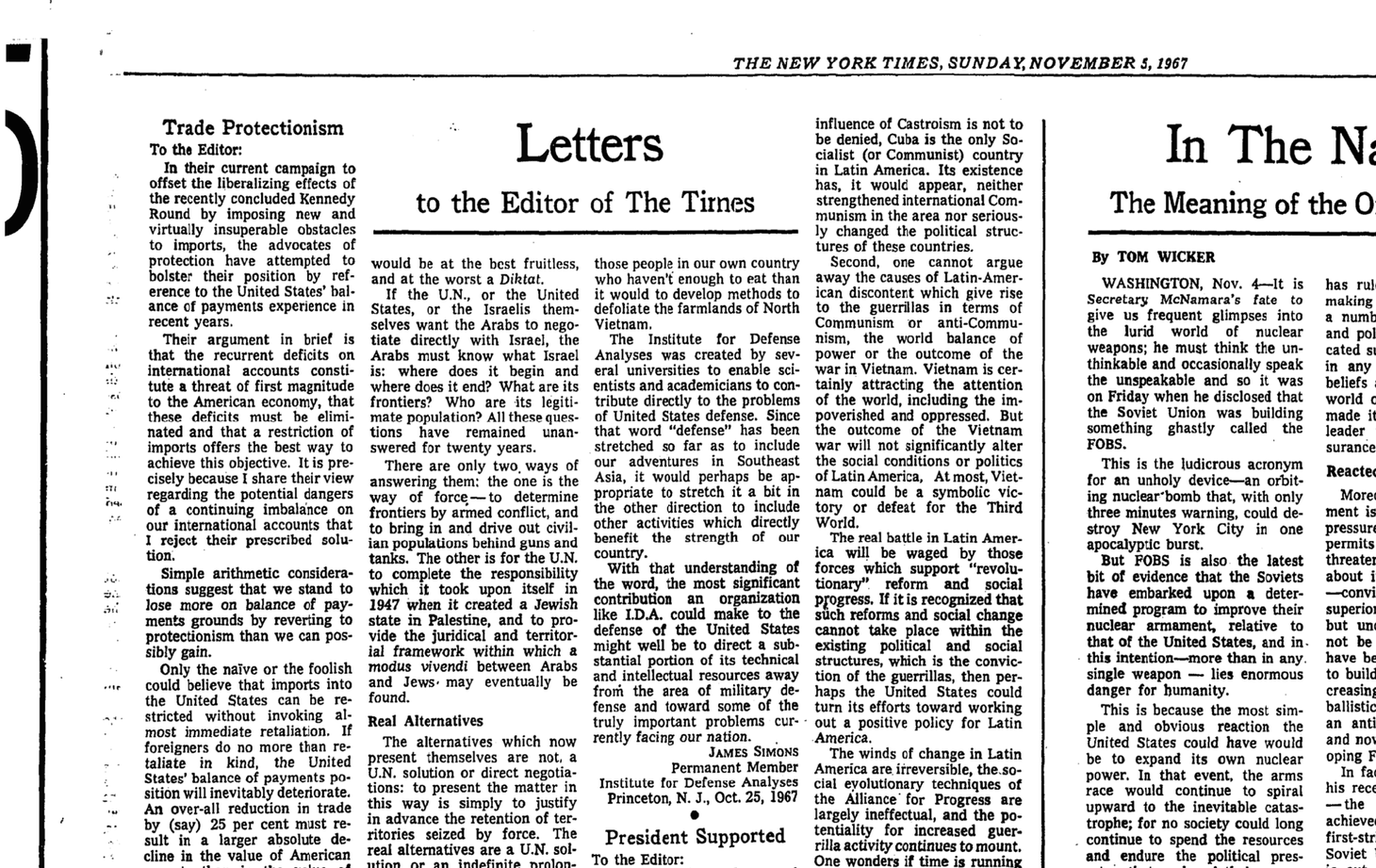The Simons Defense

Jim Simons just died. Simons was an award-winning mathematician who worked as a code breaker for the U.S. Government and founded Renaissance Technologies, the most successful investment firm in history.
Over three decades, Simons's Medallion Fund achieved an average annual return of 66% per year. It's a result that defies logic. It was most likely based on software and hardware that were consistently ahead of their time — not because they weren't available to anyone else, but because other people didn't understand how to use it. The type of GPUs and approaches to machine learning that have become fashionable in recent years may have been employed by Simons and his colleagues for decades.
You can learn more about Simons and his firm in Gregory Zuckerman excellent book, The Man Who Solved the Market, and on the equally excellent Acquired podcast about Renaissance Technologies.
Plenty will be written about Jim Simons's investments and innovations in the coming days and weeks. I wanted to highlight what I see as his finest moment, a moment that did not produce any financial returns or scientific awards. Instead, it cost him his job.
In 1967, America was embroiled in the Vietnam War, and Jim Simons worked at the Institute for Defense Analyses (IDA). The IDA was a private subsidiary of the U.S. government — a way to employ top talent without the constraints of public service salaries and bureaucracy. General Maxwell D. Taylor, who was essentially Simons's boss, published a New York Times editorial about why America must continue to fund and fight the war.
In response, Jim Simons wrote a letter to the editor that argued America's intellectual and material resources would be better invested in infrastructure and innovation at home. Simons was dismissed from the IDA soon after writing that letter.
It took the United States six more years to acknowledge and give up on that failed adventure in Vietnam. Sadly, many of the lessons of that war have not been learned, and the same mistakes have been repeated elsewhere.
Simons's full letter is included below, with my favorite passages in bold.
To the editor:
In recent books and articles on the subject of Vietnam, Gen. Maxwell Taylor has made very clear that he supports vigorous prosecution of the war. General Taylor is the president of the Institute for Defense Analyses, and his feelings may be shared by many of the people there, However, some of us at that institution have a different view.
My belief is that any political gains stemming from a military victory cannot possibly be offset by the enormous economic, intellectual, and moral investment we are continuing to place in this venture. The ultimate effect of the war will be to diminish our security rather than to bolster it. The only available course consistent with a rational defense policy is to withdraw with the greatest possible dispatch.
The foundation of our security is not our military power, but the strength and health of our society. By diverting so large a portion of our economic capabilities away from essential domestic projects, by involving so many of our intellectuals in military affairs and at the same time alienating others to the point where they will undertake no Government activity, and by replacing the traditional American atmosphere of hope and confidence with an attitude of fear and uncertainty, the Vietnamese war is very seriously eroding this foundation.
It would make us a stronger country to rebuild Watts than it would to bomb Hanoi. It would make us stronger to construct decent transportation on our East Coast than it would to destroy all the bridges in Vietnam. It would make us stronger to find ways to feed those people in our own country who haven't enough to eat than it would to develop methods to defoliate the farmlands of North Vietnam.
The Institute for Defense Analyses was created by several universities to enable scientists and academicians to contribute directly to the problems of United States defense. Since that word "defense" has been stretched so far as to include our adventures in Southeast Asia, it would perhaps be appropriate to stretch it a bit in the other direction to include other activities which directly benefit the strength of our country.
With that understanding of the word, the most significant contribution an organization like I.D.A. could make to the defense of the United States might well be to direct a substantial portion of its technical and intellectual resources away from military defense and toward some of the truly important problems currently facing our nation.
James Simons
Permanent Member
Institute for Defense Analyses Princeton, N. J.,
Oct. 25, 1967
Dror Poleg Newsletter
Join the newsletter to receive the latest updates in your inbox.

